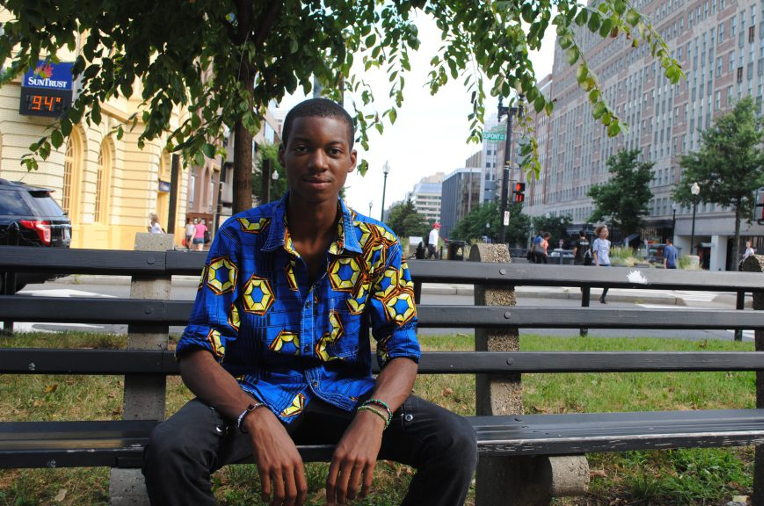Standing on the National Mall in Washington, D.C., on a rainy Saturday morning, 20-year-old Kibiriti Majuto tells me there’s something he doesn’t understand. He gestures to the U.S. Capitol building looming tall in the distance, and asks: If the vast majority of scientists believe in climate change, then why is the government not taking action?
Behind him, a crowd of young people wear shirts with slogans like “Choose a cooler world” and hold up hand-drawn signs that read “Youth for climate action now.” Xiuhtezcatl Martinez, an indigenous hip-hop artist and Grist 50 member, raps in the background, “Fight for the cause, die for the dream.”
When the group begins to march, Majuto’s near the front. Megaphone in hand, rain pouring down, he leads a chant, shouting, “What time is it?” The crowd, headed toward the Capitol, yells back, “Zero Hour!”
This is the Zero Hour climate march, a movement led by POC youth.
Majuto is the main author of the Zero Hour platform, the core set of the marchers’ demands. Hundreds of people — many of them young — braved the weather to attend the national march, while others gathered for sister marches all around the country. These Gen-Zers want action on climate change, and they want it now.
Founded by 16-year-old Jamie Margolin last summer, Zero Hour has been picking up steam, sorting out march logistics, and getting big-name environmental partners on board– all while trying to get their schoolwork done.
On the eve of the march, I spoke with Majuto about his experiences as a youth climate organizer. He’s part of Earth Guardians, an international group of young climate activists who Margolin reached out to for help. Six months ago, he stepped up.
Majuto is a refugee from the Democratic Republic of the Congo. His family fled to escape conflict, first for South Africa. He eventually found himself in Charlottesville, Virginia, where he attends Piedmont Virginia Community College.
He came to the U.S. in 2012, flying over the Statue of Liberty into JFK airport. In some ways, America was as he imagined. What he didn’t expect to see was so much poverty. He recalls a trip to Baltimore, about a year after he moved to the U.S., where he was shocked to see a lot of poor people, many of them black. This didn’t fit with his utopian image of America. “What went wrong?” he thought to himself.
To answer that question, Majuto read up on American history. His takeaway: The U.S. tends to address the needs of middle-class families, not people in poverty. That’s an issue he’s trying to address in the Zero Hour platform. He asks, “Who’s the most impacted? How do we start at the bottom and go up?”
The platform demands include the sort of things you’d expect: slashing greenhouse gas emissions, investing in mass transit, transitioning from fossil fuels, and fining polluters. But, per the bottom-up framework, Zero Hour goes much further.
For instance, just having a good mass transit system isn’t enough: The group says it needs to be accessible for people with disabilities. The transition away from fossil fuels needs to incorporate racial justice and workers rights. As for those pollution fines? They say some of the cash should go toward helping communities adapt to a warming world.
To talk about climate change, they believe, you need to address systems of oppression too.
“We experience climate change differently based on our class, race, and gender,” Majuto tells me. “Those that are well-off have a tendency to live where they can breathe fresh air and don’t have to worry about a pipeline and fossil fuel infrastructure being built in their communities.”
While adults might laud these efforts, the young people doing the work are actually kinda pissed. Adults have dropped the ball on climate change, Majuto says: “It’s not my job, or other young people’s in Zero Hour, to tell politicians who are literally civil servants it’s their job to be doing all this work.”
But they’re organizing and marching anyway, because they feel like there’s no other choice. Majuto says that he and his peers are simply trying to ensure that they can grow up and live as human beings.
“If we keep destroying our planet,” he explains, “we might not even have a future.”





